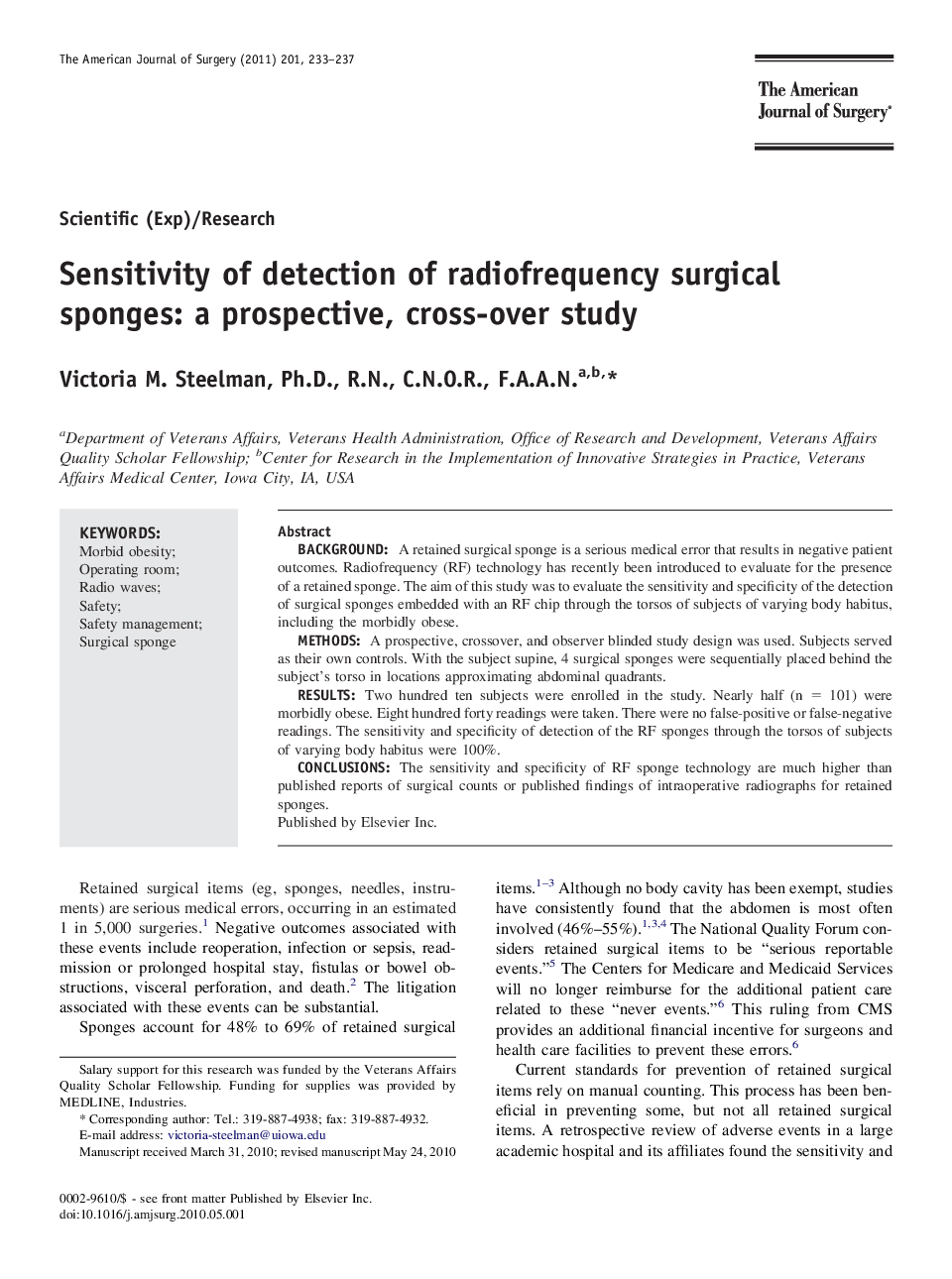| Article ID | Journal | Published Year | Pages | File Type |
|---|---|---|---|---|
| 4279961 | The American Journal of Surgery | 2011 | 5 Pages |
BackgroundA retained surgical sponge is a serious medical error that results in negative patient outcomes. Radiofrequency (RF) technology has recently been introduced to evaluate for the presence of a retained sponge. The aim of this study was to evaluate the sensitivity and specificity of the detection of surgical sponges embedded with an RF chip through the torsos of subjects of varying body habitus, including the morbidly obese.MethodsA prospective, crossover, and observer blinded study design was used. Subjects served as their own controls. With the subject supine, 4 surgical sponges were sequentially placed behind the subject's torso in locations approximating abdominal quadrants.ResultsTwo hundred ten subjects were enrolled in the study. Nearly half (n = 101) were morbidly obese. Eight hundred forty readings were taken. There were no false-positive or false-negative readings. The sensitivity and specificity of detection of the RF sponges through the torsos of subjects of varying body habitus were 100%.ConclusionsThe sensitivity and specificity of RF sponge technology are much higher than published reports of surgical counts or published findings of intraoperative radiographs for retained sponges.
